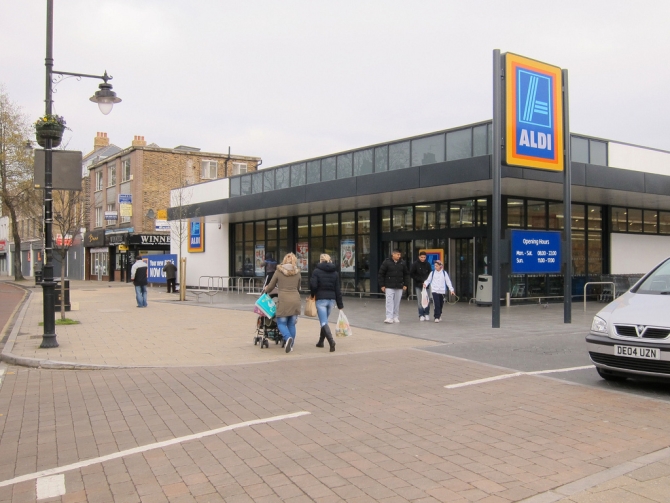Discounters have become something of a force to be reckoned with in the UK supermarket sector, with the Big Four (Tesco, Sainsbury’s, Asda and Morrisons) increasingly losing market share to German imported brands such as Aldi and Lidl. In a bid to capitalise upon this rising popularity, Aldi has announced an acceleration of its already rapid growth within the UK consumer market, and is hoping to open a large number of stores nationwide this year.

Aldi already owns and operates more than 500 stores in the UK, but plans to increase its commercial property portfolio by around 10 per cent in the next seven months having speculatively set a target of 55 new openings by the end of the year. In addition, the successful import chain will extend a further 30 of its existing sites in the hope that it can maintain and build upon its current sales growth rate of 36.1 per cent.
The retailer intends to initiate a mass recruitment programme as part of its current growth plan, as staff are required for both new stores and to cope with strong demand in its existing outlets. In total it expects to take on around 5,000 new workers this year, with 150 new store managers and 400 assistant managers expected to join its staff.
Staff training will take place at the chain’s distribution centre in Middleton, Greater Manchester, where it has recently established an academy geared towards teaching strong customer service skills. Both full-time and part-time staff will be invited to attend a series of courses.
Managing director James Hutcheson has been given the task of running the Aldi Academy, and believes it will prove beneficial to the firm in terms of maintaining a reputation for “excellent customer service”.
He says; “It is undoubtedly a challenge for Aldi to recruit thousands of staff during the next nine months, but with roles available in all UK stores, we believe there is a strong desire to work for a successful and growing retailer.
“Our stores are becoming much busier, so we require additional staff to maintain the excellent customer service which our customers expect.”
Although Aldi has been a presence in the UK supermarket sector since 1990, having opened its first store in Birmingham during that year, it was only during the recent recession that it began to see its popularity rise. It currently controls a market share of 4.7 per cent, which is a huge rise from pre-recession figures but fails to effectively compete with Tesco’s 28.7 per cent total.
As discounters continue to poach market share from traditional UK brands, this rapid expansion demonstrated by Aldi is bound to continue for some time yet. However, with the Big Four determinedly fighting back, it remains to be seen whether Aldi will ever enjoy the type of success here in the UK that it has seen in its home market of Germany.
Do you think discounters pose a real threat to the Big Four, or is Aldi’s growth in market share the temporary result of consumers wary of spending too much on the weekly shop?